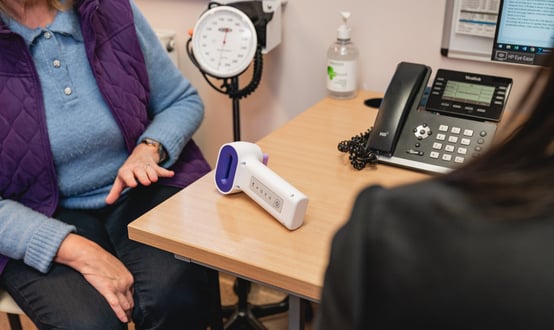Oxford pilots decision support
- 4 July 2013

Oxford University Hospitals NHS Trust is piloting electronic ordering linked with clinical decision support to reduce inappropriate use of blood products.
Barbara Cripps, the trust’s blood safety and conservation manager, said national audits have shown that 20-30% of blood products are ordered inappropriately.
The project to integrate blood ordering, currently done on paper, into the trust’s Cerner Millennium electronic patient record system was initiated to ensure that blood is used only where appropriate.
The new electronic system is embedded in Millennium and pre-populates blood orders with patient data from the EPR.
When a doctor orders blood product, the system checks the patient’s previous blood results and if the order does not fit within agreed guidelines, it alerts the doctor.
Doctors can over-ride the system if they choose to, “but it makes the person ordering think about, does the patient really need this?” explained Cripps.
The new system is live at the Nuffield Orthopaedic Centre and on Oxford’s haematology ward as a pilot, with plans to roll it out across the trust from September.
Blood safety and conservation project development manager Simon Noel said the electronic system will allow the trust to collect more information about the patients that are being given blood, by inserting mandatory fields that doctors cannot bypass.
The aim is to monitor when alerts are being over-ridden, by whom and for what reasons, but that reporting functionality is not yet available.
Evidence from a US hospital that implemented a similar system indicates that Oxford could save £0.5m a year on blood usage.
The trust also has an inhouse-developed blood tracking system which was deployed across the hospital in 2005.
A mobile printer and hand-held scanner allow nurses to positively identify patients from bar coded wrist bands and identify that the bag of blood product is for them.
Noel said the plan is to integrate the bedside system with the EPR, creating an entirely digital process for ordering and administering blood.
Read about Oxford’s EPR go-live in Insight.




